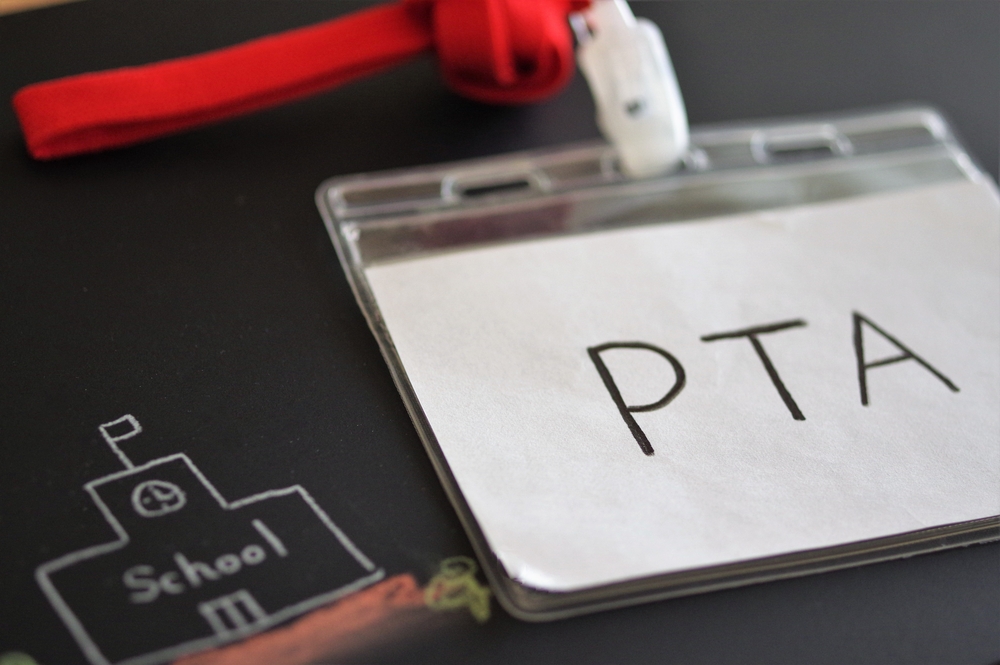The words Parent Teacher Association and its acronym PTA can elicit the strongest of opinions from parents. I’ve noticed us mums and dads tend to fall into two camps: Those that are incredibly keen to help and those, the majority if I’m honest, who treat the regular requests for help and donations as an irritation.

I have previously been a PTA rep for my daughters’ classes. I sorted out class lists, collected money for teachers’ end of year gifts and helped out at Christmas fairs and all that jazz.
For one term, I was also on the PTA committee. My tenure was completely unremarkable. I managed to turn up to a couple of meetings, on one occasion accidentally strolling in half an hour late thanks to a diary malfunction. Attendance at those two meetings was all I managed to contribute.
In passing, I should mention that particular PTA, and please do sit down before you read this, had a man as it’s chairperson not once, but twice in a two year period. That might sound like a ridiculous comment to make, but in my experience, formal, male participation on PTA committees is often negligible so having dads head up the organisation is noteworthy.
Moving on, I think PTAs do a huge amount of heroic work, most of it unrecognised and thankless. Class reps often welcome new parents and are a superb source of information for the new mum or dad in the school yard. Having personally compiled them, I know the production of class lists is incredibly time consuming, but they’re invaluable when starting school and everyone is getting to know each other.
Of course, PTAs are best known for fundraising. It never ceases to amaze me just how much cash an effective PTA can raise, especially when many parents are quite happy to turn up at a PTA-organised event, but won’t help organise it.
I think this highlights a few issues with how PTAs operate. Firstly, in my experience they are considerably more parent than teacher.
Not, you understand, that I hold this against teachers. When you look at a teacher’s workload and the expectation that they will run after school clubs etc., asking them to get involved with the PTA is possibly a bit unrealistic.
I think we all know that teachers have bigger workloads and face more scrutiny and assessment than they did 20 years ago. This means teachers have less capacity to help than they perhaps once did.
Added to this, modern work patterns have changed. I think this is the biggest challenge PTAs face. I have no experience of what PTAs were like 30, 40 or 50 years ago, but I suspect the pool of volunteers was much bigger because most households were single income. A comment I’ve heard time and again is that mums and dads would love to help, but they “have to work.”
That’s the reality. In most households mum and dad work and the last thing they want to be doing in their spare time is walking up and down the high street, going into shops and asking local retailers to donate money for a minibus.
In my experience of dealing with PTAs (I’ve dealt with more than one), they can be a bit mumcentric and this limits the pool of volunteers because dads feel a bit unwelcome. I’ll give you an example. If a PTA is going to organise social events, it needs to be explicit on any invites that partners are welcome to come along. If that doesn’t happen, dads can feel awkward about attending and they are less likely to engage with the PTA.
Again, I speak from experience here. A couple of years ago, the PTA organised drinks for the parents and they made a thing of inviting the mums and dads. I wasn’t able to go along but several dads did. As the only stay at home dad in the class, I got grief for not turning up!
Let’s consider the environment PTAs operate in. I sometimes wonder if they are a bit ambitious with what they try to achieve. Christmas fairs, summer fairs, discos every term etc. require a lot of organisation and yet PTAs try to put on these events and rely on the same handful of people to do absolutely everything.
From a parents’ perspective, I want the PTA to be successful. Here’s the but. Constantly having to remember non-uniform days, odd sock days, collect kids from over-running discos, contribute to all those fairs, well, it does get a bit much at times especially as these events often take place at the end of term or around Christmas when diaries are full to bursting.
I do sometimes wonder if PTAs should modernise their approach to fundraising. Could more of it be outsourced? Should PTAs organise one or two massive jamborees a year instead of lots of little ones?
One of the most successful PTA events I ever attended was when a circus visited the school one Friday evening. Sure, tickets had to be sold but aside from that, all the work was done by the circus.
Entire families came and it was a sell-out (yes, mums AND dads plus children). Parents and kids spoke about it for ages. There wasn’t a massive need for volunteers and there were no complaints from parents or teachers who were left to singlehandedly take down gazebos in windswept fields at nine o’clock at night because of a lack of volunteers to help.
I shall leave you with another positive impact a PTA can have. When Mrs Adams and I were doing the rounds of school visits, trying to decide which school to send Helen to, we went to an open evening at her school. The PTA committee were on hand, not only to answer questions but also to hand out glasses of wine to perspective parents.
It was such a welcoming gesture and made such a good impression. When it comes to handing out glasses of wine, it’s not something I’ve seen at any school before or since.
PTAs rely on a constant steam of ever-changing volunteers. They do their best, but these volunteers inherit an established way of doing things. Being volunteers with young families, they don’t have the capacity to shake things up. I think, however, they would get more engagement if they could modernise and change. That would happen if more mums and dads engaged with the organisation.
Don’t leave those letters from the PTA to languish in the bottom of your kids’ school bags. Change will only take place if we embrace and love the association and what its active members do for the school.






